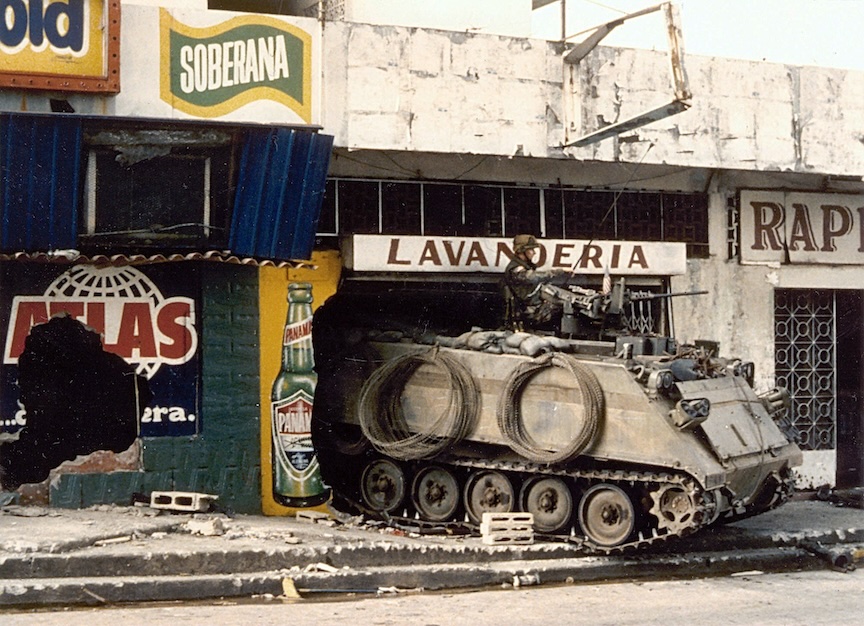
When Panamanian strongman, General Manuel Noriega, clamped down on the limited democracy existing in Panama, In December 1989, the US intervened and ousted the Noriega–led government. Noriega was arrested and brought to the United States to face charges of drug trafficking.
In the late 1980s, Panama found itself at the center of international attention due to the actions of its military leader, General Manuel Noriega. Noriega, who had ruled Panama with an iron fist, clamped down on the limited democracy that existed in the country, leading to widespread unrest and ultimately, intervention by the United States.
General Manuel Noriega had been a significant figure in Panamanian politics and the military for decades. He rose to power in the late 1960s and became the de facto leader of Panama in 1983, despite not holding the official title of president. Noriega's rule was marked by authoritarianism, corruption, and human rights abuses. Although Panama had a semblance of democratic institutions, Noriega exerted control over the government through intimidation, manipulation, and violence.
Noriega's regime was also heavily involved in illicit activities, including drug trafficking. During the 1980s, he established close ties with drug cartels, particularly the Medellín Cartel in Colombia. Noriega allowed Panama to be used as a transit point for cocaine shipments to the United States, in exchange for substantial financial kickbacks. Despite these activities, Noriega maintained a complex relationship with the United States. He had been a longtime asset of the Central Intelligence Agency (CIA) and had provided valuable intelligence during the Cold War. However, as his involvement in drug trafficking and other criminal activities became more blatant, his relationship with the U.S. government deteriorated.
By the late 1980s, the situation in Panama had reached a boiling point. The country's economy was in decline, and there was growing opposition to Noriega's rule both within Panama and internationally. In 1987, a former associate of Noriega, Colonel Roberto Díaz Herrera, publicly accused him of rigging elections, murdering political opponents, and engaging in drug trafficking. These allegations further fueled anti-Noriega sentiment and led to protests and strikes across the country.
In response to the growing unrest, Noriega declared a state of emergency, suspended civil liberties, and intensified his crackdown on opposition groups. The situation escalated when, in May 1989, Noriega annulled the results of a presidential election that had been widely seen as a victory for opposition candidate Guillermo Endara. The election was marred by violence and fraud, and Noriega's refusal to step down in the face of overwhelming evidence of his defeat further isolated him on the international stage.
The United States, under President George H.W. Bush, decided that Noriega's actions could no longer be tolerated. In December 1989, the U.S. launched Operation Just Cause, a large-scale military invasion aimed at removing Noriega from power and restoring democracy in Panama. The operation involved more than 27,000 U.S. troops and was one of the largest American military interventions since the Vietnam War. The invasion was swift and decisive, with U.S. forces quickly overwhelming Panamanian military units loyal to Noriega.
Noriega initially sought refuge in the Vatican Embassy in Panama City, but after several days of negotiations and psychological warfare tactics employed by U.S. forces, including blasting loud rock music at the embassy, Noriega surrendered on January 3, 1990. He was immediately flown to the United States, where he faced charges of drug trafficking, racketeering, and money laundering.
In 1992, Noriega was convicted in a U.S. federal court and sentenced to 40 years in prison, later reduced to 30 years. His trial and imprisonment marked the end of his influence in Panama and served as a cautionary tale of the dangers of unchecked power and criminal activity.
The U.S. intervention in Panama, while successful in ousting Noriega and restoring some semblance of democracy, was not without controversy. Critics argued that the invasion violated international law and resulted in significant civilian casualties. Nonetheless, the removal of Noriega paved the way for democratic reforms in Panama, and his capture was seen as a victory in the U.S. war on drugs. The legacy of Operation Just Cause remains a complex and debated chapter in both U.S. and Panamanian history.
 >
>